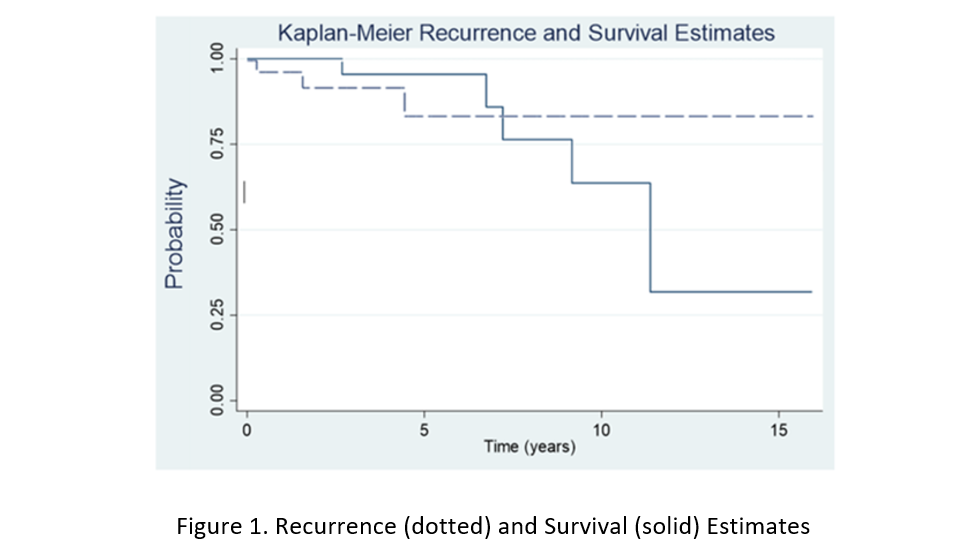Recurrence and Survival of “Aggressive” Adnexal Cutaneous Tumors: Single Center Experience
*Alessandra Storino, Nicholas E Tawa
Beth Israel Deaconess Medical Center, Boston, MA
Objective: The literature suggests Malignant Adnexal Cutaneous Tumors (MACT) have aggressive behavior with high risk of metastasis, however our institutional experience suggest an indolent course. We hypothesized most patients have low risk of lymph node involvement, recurrence and death.Design: Retrospective cohort
Setting: Tertiary teaching hospital Patients: Consecutive sample of 38 patients (median age 59, 71% male) diagnosed with MACT between 2001 and 2018 obtained from of the Institutional Cutaneous Surgical Oncology Database. Eligible patients were >18 and receive their care at our institution.Interventions: none Main Outcome Measures: risk of lymph node involvement, risk of recurrence, 5-year overall survival Results: Most patients had long-standing cutaneous lesions (median 24 months) and no palpable lymph nodes. Primary tumors were treated with wide local excision (25, 65.8%), Moh’s surgery (5, 13.2%) and amputation (8, 21.1%). Of 22 patients that underwent sentinel lymph node biopsy, one (4.5%) had lymphatic disease. Most patients had stage I-II (94.7%). Two patients (5.3%) received chemotherapy and 7 (19%) received radiotherapy. Three patients (7.9%) had disease recurrence at a median time of 1.5 years (0.3 - 4.4). Five patients (13.2%) died at a median time of 7.2 years (95% CI 6.7 - 9.2), but only one patient was known to die from MACT. Five-year survival was 95% (95%CI: 71-99). Conclusion: Despite nomenclature, most patients presenting with MACT had indolent, rather than aggressive courses with low recurrence rate and excellent 5-year survival. Lymphatic disease identified after SLNB was rare. Multicenter collaboration is needed to stratify the risk of lymphatic involvement. 
Back to 2020 Posters
